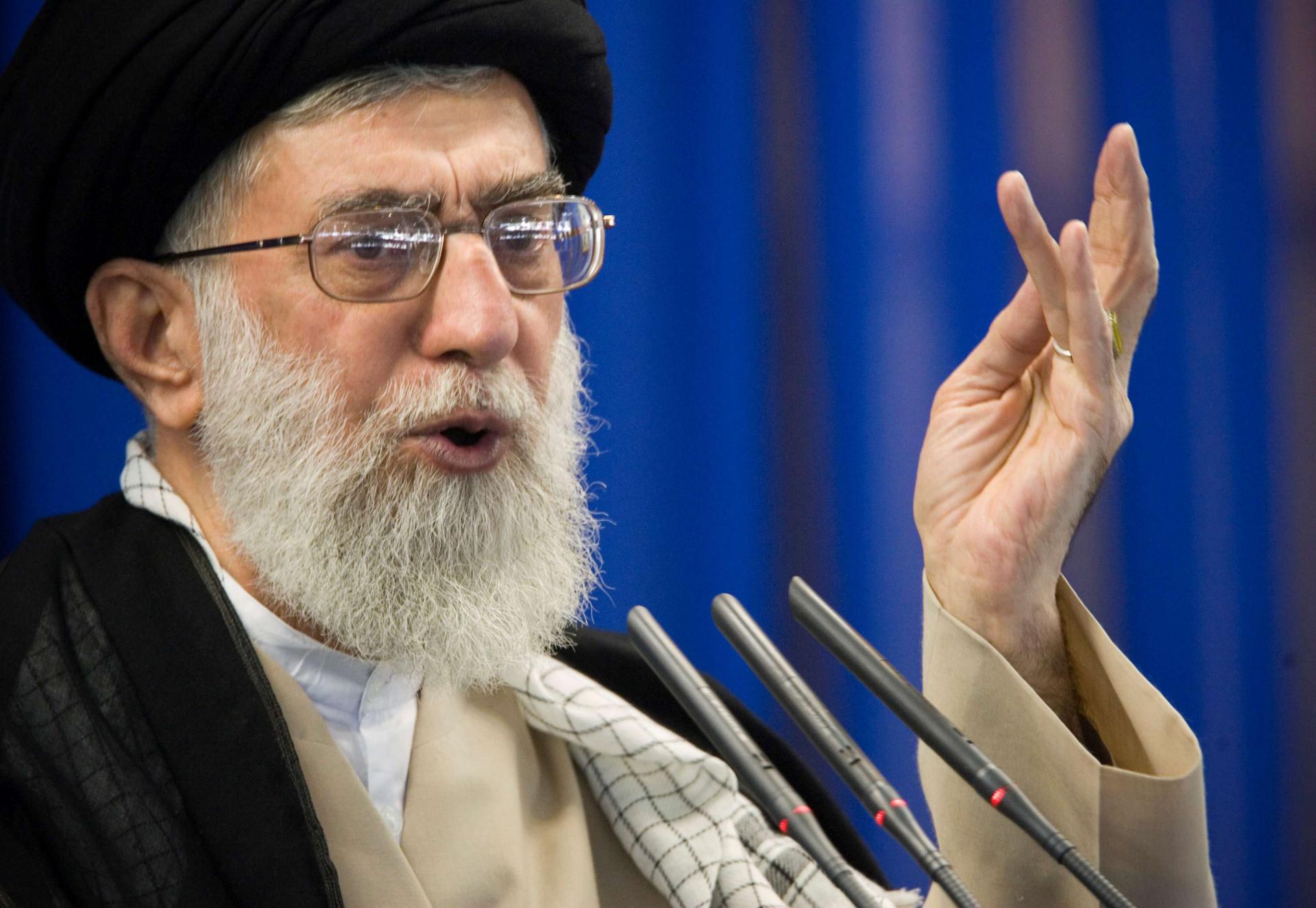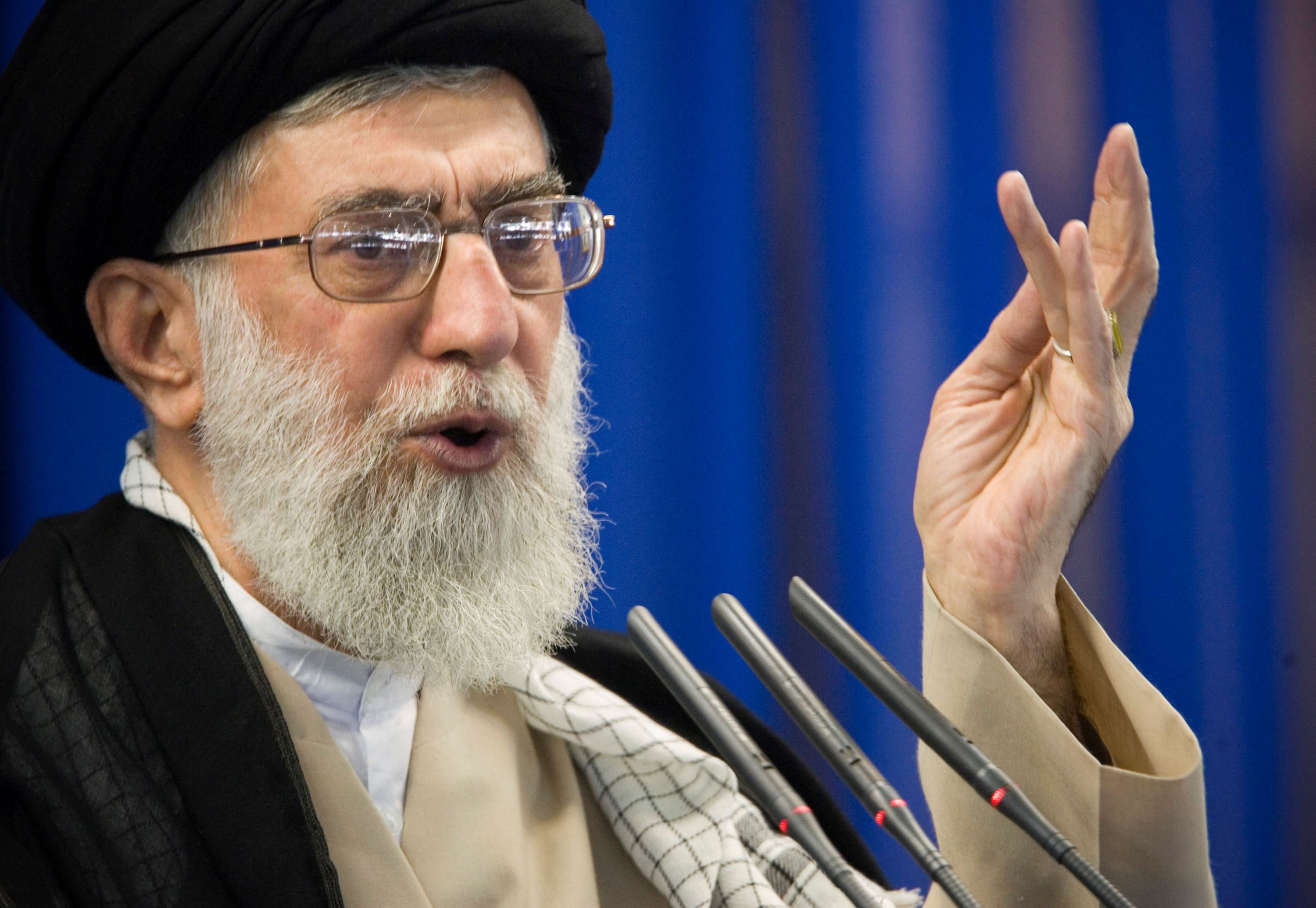Iran's Khamenei says negotiations with US 'useless'
Iranian supreme leader says there is no point negotiating with an unreliable state that fails to abide by signed agreements.
Saturday 21/07/2018
TEHRAN - Iran's supreme leader on Saturday backed President Hassan Rouhani's suggestion that Iran may block Gulf oil exports if its own exports are stopped, according to his official website.
"(Ayatollah Ali Khamenei) said remarks by the president ... that 'if Iran's oil is not exported, no regional country's oil will be exported,' were important remarks that reflect the policy and the approach of (Iran's) system," Khamenei's website said.
Rouhani's apparent threat earlier this month to disrupt oil shipments from neighbouring countries came in reaction to looming US sanctions and efforts by Washington to force all countries to stop buying Iranian oil.
Iranian officials have in the past threatened to block the Strait of Hormuz, a major oil shipping route, in retaliation for any hostile US action.
Khamenei used a speech to foreign ministry officials to reject any renewed talks with the United States after President Donald Trump's decision to withdraw from a 2015 international deal over Iran's nuclear programme.
"The word and even the signature of the Americans cannot be relied upon, so negotiations with America are of no avail," Khamenei said.
It would be an "obvious mistake" to negotiate with the United States as Washington was unreliable, Khamenei added according to his website.
He said that negotiations with the United States are "useless" because it does not abide by agreements.
"As I have previously said, we cannot trust in the words of the United States and even in their signature, so negotiations with the United States are useless," Khamenei told the gathering of Iranian diplomats in Tehran.
"The idea that problems can be resolved through negotiations or relations with the United States is a major error," he added.
Having withdrawn from the landmark 2015 nuclear deal between Tehran and world powers, Washington is determined to isolate Iran and pile on economic pressure with a full reimposition of sanctions, starting in August.
Europe opposes the move and has vowed to find ways of maintaining its trade ties with Iran, which under the deal curbed its nuclear programme in exchange for a lifting of sanctions.
"Negotiations with the Europeans must continue, but we must not wait for their offer indefinitely," said Khamenei.
Trump has said he is open to a new deal that would cover not only Iran's nuclear facilities, but also its missile programme and regional interventions which are seen as a threat to Washington's Israeli ally.
"The US seeks the return of the situation and their status before the (1979 Islamic) revolution in Iran," said Khamenei.
"They are against the nuclear potential and the power of its (Iran's) enrichment, and its presence in the region."
Iran was a close ally of the United States up until the revolution.



